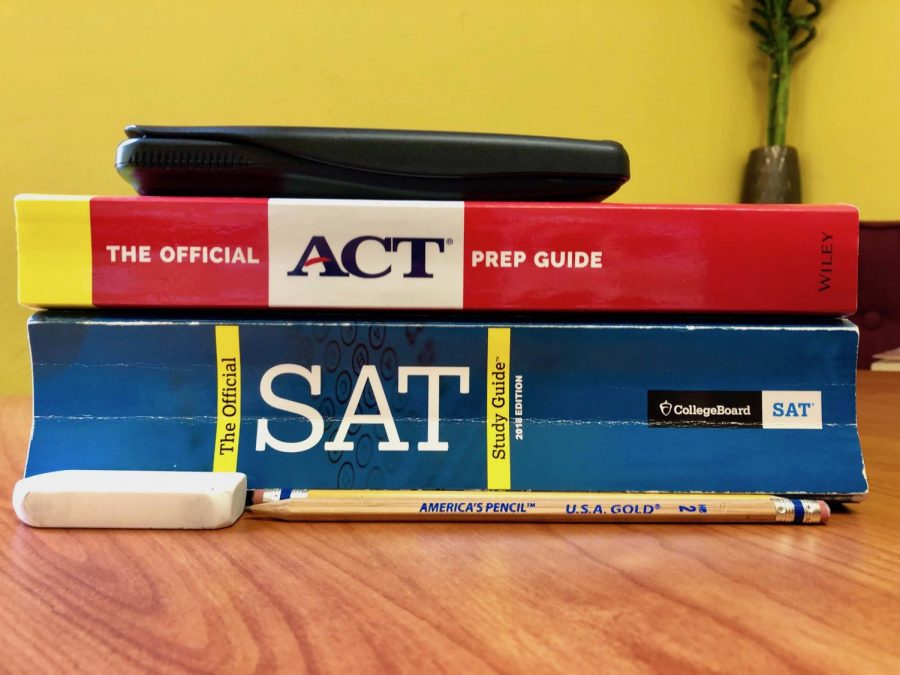For students applying to private schools or colleges, standardized testing is typically a requirement on the application. Tests that were once recommended by experts and teachers alike are falling out of favor, and many colleges and universities are going test-optional again, just as they had for the 2019-2020 school year.
During March of last year, when the pandemic caused world-wide shutdowns for institutions and businesses, Betsy DeVos, United States Secretary of Education, and Donald Trump announced, “Students need to be focused on staying healthy and continuing to learn. Teachers need to be able to focus on remote learning and other adaptations. Neither students nor teachers need to be focused on high-stakes tests during this difficult time.”
Critical feelings about these high-stakes tests do not go unnoticed, and changes to these exams are being made around the nation. States across the country are beginning to or have been dismantling certain requirements for standardized testing, while others are continuing the practice for a more empirical purpose.
According to EducationWeek, in California, it was “announced [that] it would replace traditional Smarter Balanced exams with shorter versions of the test.”
Also, in Virginia, the “education department announced that students can take ‘local assessments’ instead of the state Standards of Learning exams in history, social science, and English writing.”
Finally, in Texas, “lawmakers say they want state superintendent Mike Morath to either cancel state STAAR exams this school year, or at least not use them to rate schools and districts.”
Most of these changes have been a result of the pandemic, and standardized testing is beginning to lose necessity. Understanding this shift, Valerie Strauss from The Washington Post says, “we are seeing the collapse of the two-decade-old bipartisan consensus among major policymakers that testing was the key lever for holding students, schools, and teachers ‘accountable.’”
This accountability, as she explains, meant that test scores became an important component for admitting applicants and rewarding people for having top scores. And in some cases, exam scores were even used to reward student scholarships and bonuses for working teachers who received a great score on the SAT, even though they took the test over a decade ago.
As such, there are many in search for alternatives, like the University of South Carolina, (South Carolina is included in the list of states that have made changes to standardized tests). The university wrote that “standardized testing is a fraught issue. And widespread concerns are that schools are narrowing the curriculum by overemphasizing subjects like math and reading and that high-stakes testing is making children suffer high levels of anxiety.“
Many students can likely relate to the stress that comes when taking a standardized test, or really any test for that matter. The mixed feelings a student can have while taking a standardized test can be immense, and here at Webb, many Webbies can attest.
Jake Baiz (‘21) is a senior who committed to UC Davis without being required to take the SAT due to COVID. When asked about the SSAT, the required entrance exam for Webb, he recalled the pressure he felt when taking the test.
“The SSAT is definitely intimidating knowing how much fate that test has on your future when you’re only around 15, but it represents the number of obstacles that you will inevitably face during your years at Webb,” Jake said.
Another student, Jonathan Rosales-Cardenas (‘24), shared how he studied for the SSAT and how he generally felt about the test.
“I was honestly fine with it, but only because I had prepared since I was fortunate enough to afford test-prep. But I do think that it is flawed in how it measures every student from one test,” Jonathan said.
Austin Ra (‘23) has a view of the matter that reflects a few of Strauss’ observations and the University of South Carolina’s alternative.
“More colleges are starting to look at a combination of academics and activities rather than just your grades. I think many students would rather have their grades and their accomplishments dictate their future instead of a standardized test. I hope that it becomes an optional tool to help students,” Austin said.
Fortunately for many students, over 60% of colleges have gone test-optional for the class of 2021, according to the Ivy Wise College Blog. To add, they believe that “[they] expect more test centers to cancel SAT/ACT examinations as COVID-19 cases continue to spike across the country.”
This cancellation will likely help families and students across the nation as they anticipate resurgences of COVID-19 cases and economic turmoil. The Ivy Wise College Blog contains extremely useful and detailed information, including a list of colleges that are going test-optional this year and schools that are offering virtual tours.
With all if this information available, it may be hard to know for certain if the test will become a requirement in the future for students. But Héctor Martinez, Dean of College Guidance, has excellent advice for students who are concerned about the SAT or ACT.
“The most important thing a student should be focused on is doing well at Webb,” Mr. Martinez said.
For the class of ‘21, the majority of colleges are going test-optional, but for the classes of ‘22 to ’24, there is no certainty as to how the SAT and ACT will change until the pandemic is over.
“Colleges and universities will likely use the previous and current year to see if they are happy with the two graduating classes,” said Mr. Martinez.
When it comes to preparing for the SAT or ACT, Mr. Martinez told me that the class of ‘22 should be reserved and cautious with practice or test-prep. For students, it is more important to do well at Webb rather than garnering hours into expensive tutoring. For one thing, according to EdSource, the UC’s have abandoned the SAT and ACT exams as a freshman admission requirement and decided to develop its own substitute standardized test by 2025. This is a huge change, since this decision will influence other “colleges and universities to pull away from the exams, particularly at other public universities.”
Likewise, according to Get Schooled, not taking the test would mean that other factors such as GPA, awards, extracurriculars, and college essays will be weighted more, since they will have to account for a standardized test, which adds to Mr. Martinez’s message about excelling at Webb.
But “excelling at Webb” does not necessarily mean grades, since there is more to a person than their GPA. It is generally more advantageous and fulfilling to have hobbies outside of Webb and to have great participation at Webb events than spending hours studying for the SAT or ACT.
With requirements and flexibility bound to change, standardized tests face stiff challenges, beginning at the state level. Many colleges are going test-optional this year, meaning that test-prep will no longer be a priority for thousands of juniors across the country; however, that does not mean colleges will continue going test-optional in the future.
It is likely that if COVID-19 cases diminish and resources are replenished, then the SAT and ACT may become requirements again. But it is never healthy to dread the unknowable. Instead, students should take time to think about the schools where they may want to apply, stay up to date regarding the application requirements of colleges and universities, and most importantly do their very best to excel at Webb.















